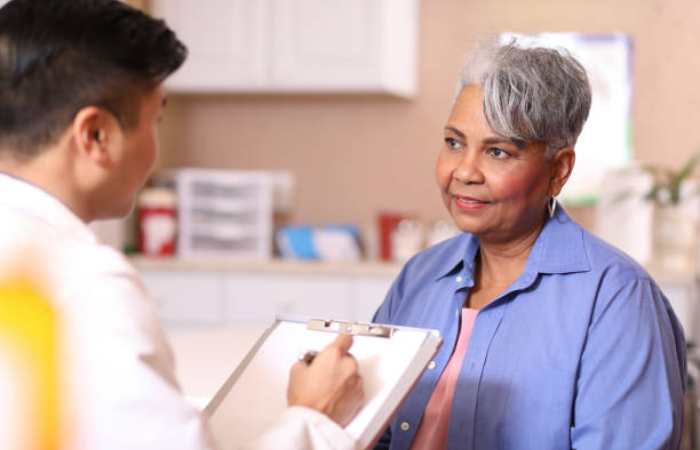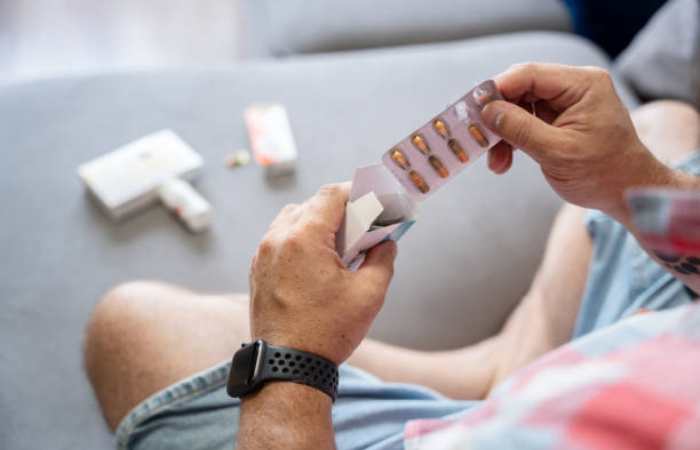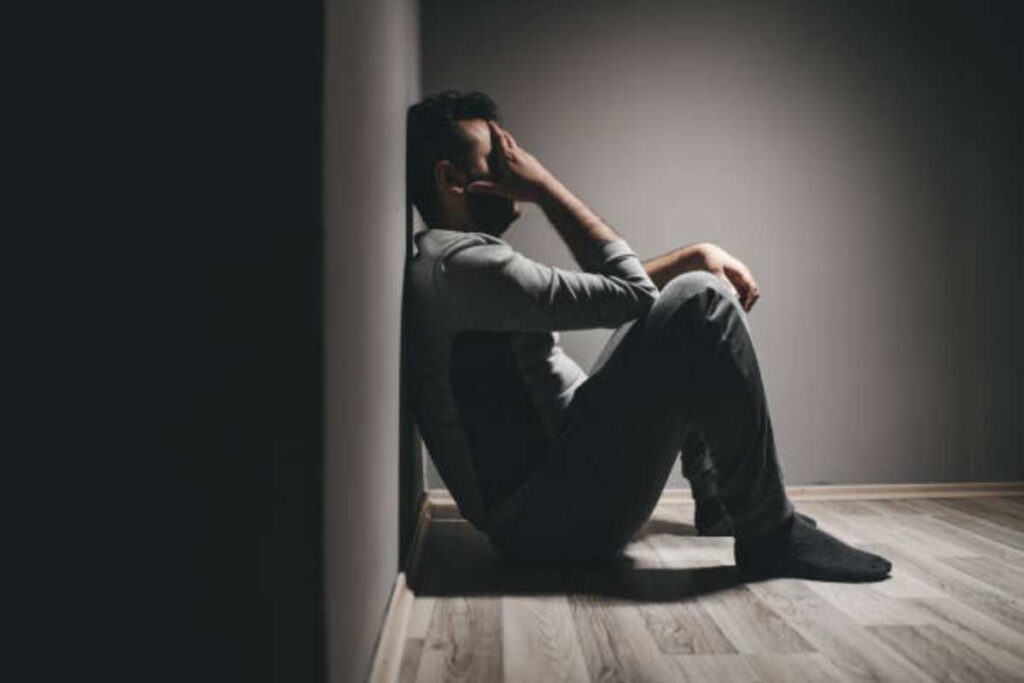Depression is a complex disease that can manifest itself differently in each person. Symptomatic therapy and treatment of depression are not dissimilar.
Some people prefer physical activity and original stimulation to manage symptoms, while others prefer to talk about it or write in a journal. Others may find it challenging to seek help, and some may require medication to control chemical imbalances.
Either way, depression can be managed if you have access to the right tools and information.
Here, you’ll find several options for getting help for depression (including medication, therapy, support groups, and lifestyle changes), as well as some helpful resources.
Therapy for Depression

However, if you have severe depression, you may be advised to use a combination of therapy and medication.
Talk therapy
Therapeutic communication involves discussing your problems and feelings with an experienced therapist. This type of therapy can be helpful if you want to talk to someone who understands you and can give advice in a safe environment.
A therapist can help you identify designs of thinking or behaving that contribute to your feelings of depression. Talk therapy can help with temporary or mild depression, as well as severe depression, but only if other treatments, such as medication, are available.
Cognitive therapy
If you recognize that you have negative thinking patterns and want to overcome them, cognitive therapy may be a good option. Its goal is to identify the damaging thoughts and emotions that make depression worse.
This therapy can help you classify negative thought designs and transform them into more productive ones. Cognitive therapy is usually short-term, lasting from 6 weeks to 4 months.
Behavioural therapy
Behavioural therapy can help you classify and change potentially self-destructive or harmful behaviours. The idea is that all behaviours result from learning, and dangerous behaviours can be changed.
Behavioural therapy typically helps people engage in activities to enhance feelings of well-being.
Cognitive behavioural therapy (CBT)
CBT combines cognitive and behavioural therapy and is a type of psychotherapy that helps change thought patterns to improve mood and behaviour. Cognitive behavioural treatment may be a good option if you struggle in these areas.
Medications for Depression

While chemical imbalances can contribute to depression, they are only one aspect of depression: Depression is multifaceted. Antidepressant medications are a standard part of treatment, but they are not always necessary.
Some people take medications for depression for a short period, while others use them for a long time or not at all. There is no shame in taking medications for depression. Many people need that little extra help that you provide.
Before prescribing any medication, your healthcare provider will consider many factors, including:
- Possible side belongings
- Your current health concerns
- Possible drug interactions
- Cost
- Your specific symptoms
Medications commonly used to treat depression include the following:
Selective serotonin reuptake inhibitors (SSRIs)
SSRIs commonly have scarcer side effects than other types of antidepressants. Fluoxetine (Prozac), sertraline (Zoloft), and escitalopram (Lexapro) fall into this category.
Depression is allied to low levels of serotonin, dopamine, noradrenaline, and other chemicals in the brain. SSRIs prevent some serotonin from being absorbed from the brain into the bloodstream. This upsurges the levels of serotonin in the brain, and increasing levels can help relieve depression.
Serotonin-norepinephrine reuptake inhibitors (SNRIs)
SNRIs include duloxetine (Cymbalta) and desvenlafaxine (Pristiq).
Serotonin-norepinephrine reuptake inhibitors (SNRIs) can help treat depression by maintaining levels of serotonin and norepinephrine (mood-altering chemicals) in the brain. This is done by preventing serotonin and norepinephrine from returning to unconstrained cells.
Tricyclic antidepressants
Tricyclic antidepressants allow more serotonin and noradrenaline to remain in the brain, which helps improve mood. They can be very effective, but they have more serious side effects. They are usually used when other medications have failed. They include imipramine (Tofranil) and nortriptyline (Pamelor).
Additional treatment options
If traditional medications aren’t working for you, there are alternative and natural treatments for depression that may be very helpful.
Please note that these treatments should not be used without first consulting your doctor, especially if you are taking prescription downers or other medications.
Natural remedies
Whether you prefer natural crops, find the side belongings of other medications too severe, or are simply looking for a new alternative to combat depression, natural remedies can be an excellent option for many people.
It may be helpful to use complementary or natural treatments for depression along with traditional ones. Consult your doctor before adding supplements or other complementary therapies to your diet.
Some natural remedies include St. John’s wort, reduction techniques, and acupuncture.
Support groups
Sometimes, supporting other people going through something similar can be very helpful.
Organizations alike the National Alliance on Mental Illness offer funding groups, education, and other resources to help cope with depression and other mental health issues.
The Anxiety and Depression Connotation of America is an international nonprofit organization devoted to the prevention and action of a variety of mental disorders, including depression.
The association offers free in-person and virtual support groups in the United States and Canada. It has a thriving online support group for people with anxiety and depression, with more than 84,000 members.
Lifestyle changes
Specific lifestyle changes may also help you manage hopelessness.
For example, if you drink alcohol or use psychoactive substances, quitting them can have a significant impact on your symptoms. Some people may experience temporary relief from depression when using alcohol or other substances, but once the drug wears off, the symptoms may get worse. They can even make it harder to treat depression.
On the other hand, eating healthy foods and staying bodily active can help you feel better overall. Regular exercise can increase endorphin levels and ease depression. Getting enough sleep is also essential for your physical and mental health.
How to find treatment near you
The first step in treating depression is to make an appointment with your prime care physician or other health care provider. They can recommend mental health specialists in your area.
Online therapy is more popular than ever and can be a great option, especially if you’re looking to save time and prefer to connect with someone from the comfort of your home. If your budget is tight, free and low-cost online therapy options exist.
If you are religious, ask your religious leader if they can recommend mental health professionals. Some people prefer faith-based therapy that integrates their religion into their treatment plan.
You can also look at healthcare databases to find therapists, psychiatrists, and counsellors. These databases can provide information such as certifications, accepted insurers, and user reviews. You can start with these databases:
- Anxiety and Depression Association of America
- Psychology Today
- Org
How to find the proper treatment
Living with depression can be difficult, and some days may be better than others. However, following your treatment plan is one of the most important things you can do. You may feel discouraged in the first few weeks, but keep going. All treatments can take months before you notice a difference.
When you experience periods of improvement, you may be tempted to stop treatment altogether. However, do not do this without first consulting your doctor. They can advise you on what to do next and how to proceed safely.
Talk to your therapist about how you feel about your therapy sessions and overall treatment plan. This will allow them to work with you and make changes if you think your treatment plan is not working. Remember, they are always there for you and will serve you best if you are open and honest with them.
It is vital that you feel comfortable with your therapist. If not, try a new one. Finding the right therapist can be a long process, so try to be as patient as possible and remember that you may have to meet with several therapists before finding the right one.
Remember that finding the proper treatment is often a process of trial and error. If something doesn’t work, it’s best to move on. If two months or more have passed, and you’re still following a treatment plan and not feeling relief, it’s probably not working for you. You’ll start to feel relief from depression within three months of starting medication
Talk with your doctor directly if you:
- Depression doesn’t improve after numerous months of treatment
- Symptoms have improved, but you don’t feel like yourself
- Symptoms get worse
These are signs that your action plan isn’t working for you.
Frequently asked questions about depression
Is Depression Just a Biochemical Imbalance?
A chemical inequity in the brain plays a role in depression, but other factors can also cause the condition. There are many nuances, complexities, and misinformation surrounding depression, and research is inconclusive about its exact cause.
What is the root cause of depression?
There is no single root cause of depression, as the illness can arise for many reasons, with or without different triggers. For example, it can be hereditary or produced by a stressful or hurtful event or a combination of events (such as illness, loss, or financial problems, etc.).
What are the indications of depression?
There are many symptoms of depression, but they are dissimilar for everyone. Indications may include:
- consistent dejection or low mood
- feelings of hopelessness, helplessness, guilt, worry, irritability, bigotry, anxiety
- low self-esteem
- lack of incentive or attention
- indecisiveness
- thoughts of harming oneself or obligating suicide
- language or moving slower than normal
- appetite or weight fluctuations
- unexplained pain
- constipation
- disturbed sleep patterns
- lack of vigour and libido
- experiencing difficulty with domestic, home, and work
- avoiding social circumstances and friends
- neglecting welfare and hobbies
What is the most severe form of depression?
The most severe type of depression is called major depression. People with major depression may feel depressed all the time and lose interest in activities. This type of depression is usually treated with medication and psychotherapy.
How can I help someone with depression?
There are several ways to help someone with depression. For example, start a conversation with the person, tell them you’re there for them, and check in regularly.
You can help them find support and resources and offer to help them with simple everyday tasks like housework or shopping. Learn more about it and what she’s going through so you can better help them.
The Bottom Line
Depression is a challenge. However, many effective treatments can help you manage your indications.
Depending on the severity of your symptoms, your action plan may include a combination of medications, therapies, and adjunctive treatments. Be sure to consult your doctor to determine the best treatment plan.


